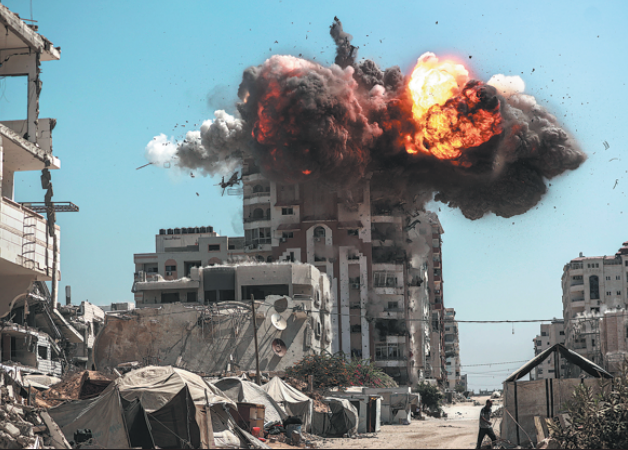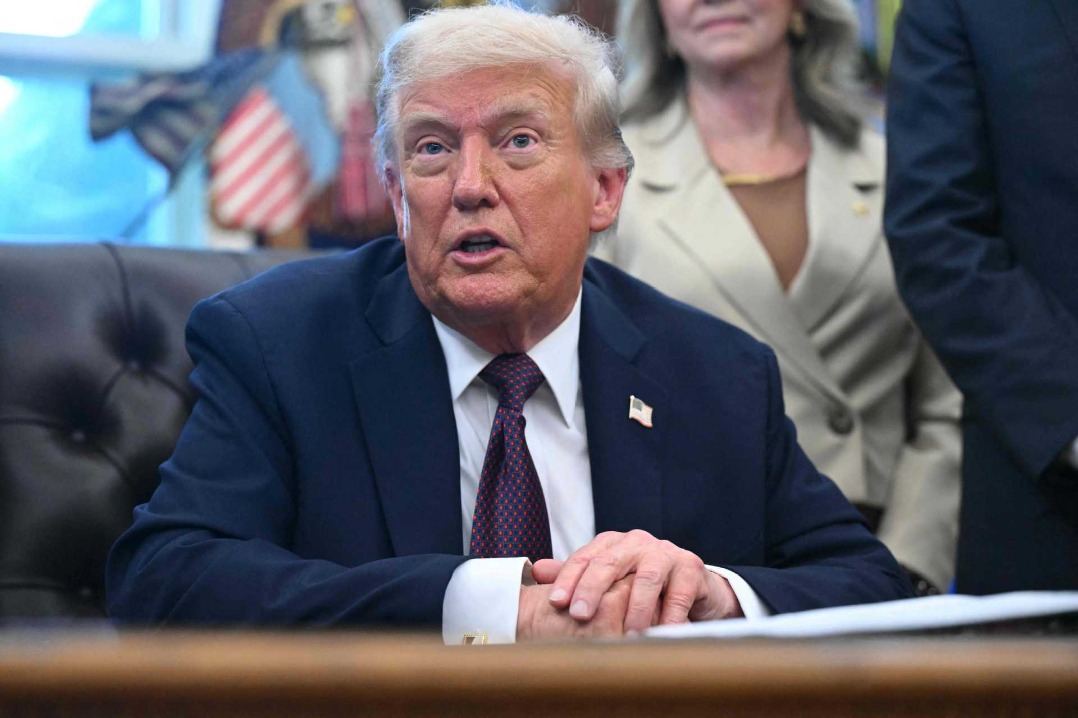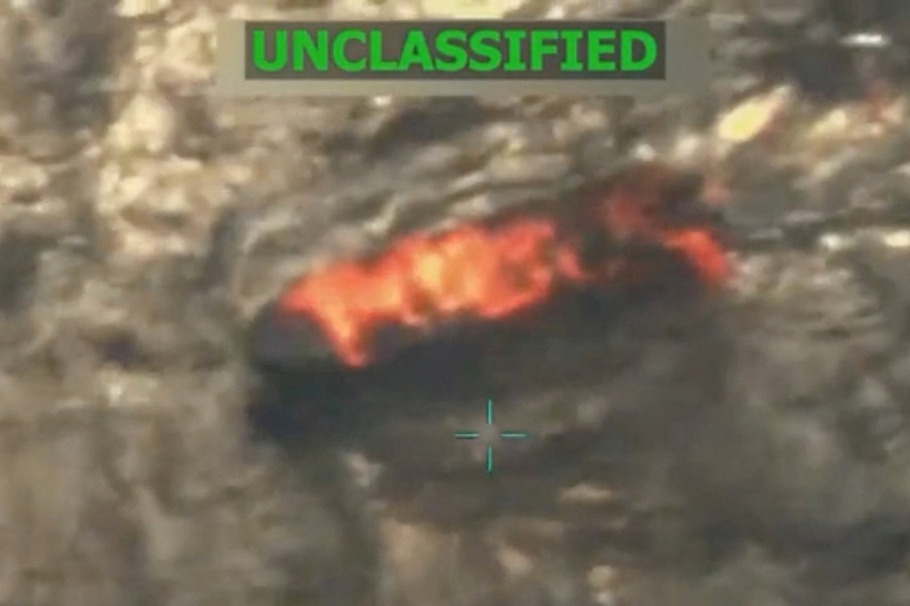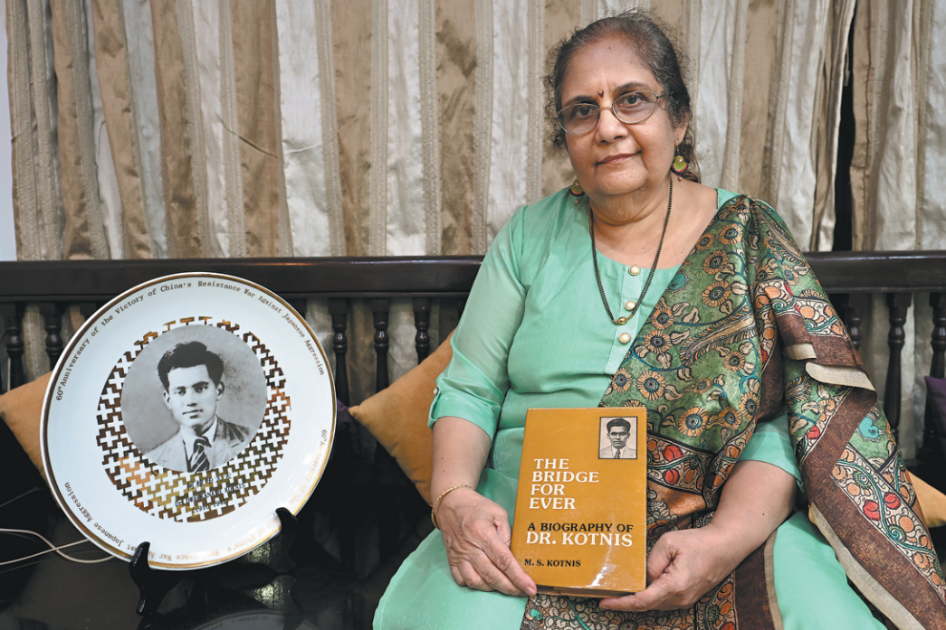Summit seeks to hold Israel responsible
Arab, Muslim leaders gather to call for a unified response to strikes in Doha


An emergency gathering of Arab and Muslim leaders was held in Qatar on Monday to show unity and issue a forceful response to Israel's unprecedented airstrikes on Hamas leaders in Doha last week as the Gaza conflict grinds on.
"The time has come for the international community to stop using double standards and to punish Israel for all the crimes it has committed," Qatari Prime Minister Sheikh Mohammed bin Abdulrahman Al Thani told a preparatory meeting on Sunday, adding Israel's "war of extermination "in Gaza would not succeed.
"What is encouraging Israel to continue … is the silence, the inability of the international community to hold it accountable."
Among the leaders at Monday's summit were Iranian President Masoud Pezeshkian, Turkish President Recep Tayyip Erdogan, Malaysian Prime Minister Anwar Ibrahim, Iraqi Prime Minister Mohammed Shia al-Sudani and Palestinian President Mahmoud Abbas.
Delegates from the Arab League and the Organization of Islamic Cooperation were collaborating on a joint resolution that will specify concrete measures against Israel. Arab League Secretary-General Ahmed Aboul Gheit said that "silence on a crime is a crime".
A draft final statement seen by AFP warned that "brutal Israeli aggression" put efforts to normalize relations between Israel and Arab states at risk.
It "threatens all that has been achieved on the path toward establishing normal relations with Israel, including existing and future agreements", the draft added.
The statement welcomed a "shared vision for Arab security "between Arab and Muslim states, as leaders discussed a proposal to establish a NATO-style joint military force contributed by members of the Arab League.
Prince Turki Al Faisal, former Saudi Arabian ambassador to the United States and the United Kingdom, wrote in a column that economic and diplomatic sanctions should be declared against Israel.
"And they must remind the US of its responsibility in allowing Israel to continue its foolishness. The credibility of the US is at a crossroads in the Arab and Muslim worlds."
Adnan Hayajneh, a professor of international relations at Qatar University, noticed a momentum against what Israel is doing in Gaza and the region as a whole.
"The US has to wake up to the fact that you've got 2 billion Muslims around the world insulted, and it's only the beginning. It's not only the attack on Qatar, it is a continuation of the destabilization of the whole region," he said.
However, political analyst Marwan Bishara told Al Jazeera that Middle Eastern states "are not going to find their collective security and defense overnight".
"That's going to take time," he said.
The deadly attack — carried out by one US ally on the territory of another — sparked a wave of criticism, but US Secretary of State Marco Rubio, dispatched by President Donald Trump, traveled to Jerusalem at around the same time as the Arab and Muslim summit.
Israeli Prime Minister Benjamin Netanyahu met Rubio on Monday, saying the visit shows the resilience of the US-Israeli relationship, which is "as strong and durable as the stones of the Western Wall we just touched", The Times of Israel reported.
Rubio, who earlier said the US was "not happy" about Israel's attack in Doha but that it was "not going to change the nature" of US-Israel ties, did not speak to the media in Jerusalem, the newspaper said.
In Gaza City, Israeli forces have since Monday dawn killed more than 24 people after deadly strikes on Sunday, Palestinian officials said, and forced thousands of people from their homes to flee south, some cramming into pickup trucks, others on foot.
"The situation is very difficult," said Ahmed Habboush, 62, who fled on foot. "Most people do not have the money to get transportation to move. This is not a life; we are exhausted. Animals have a better life than us."
Agencies contributed to this story.
































